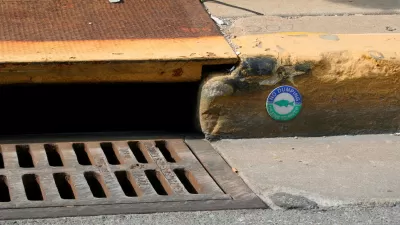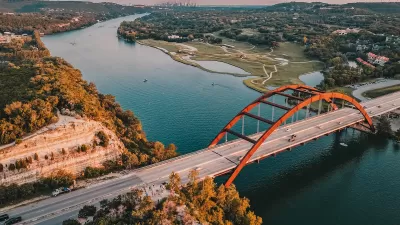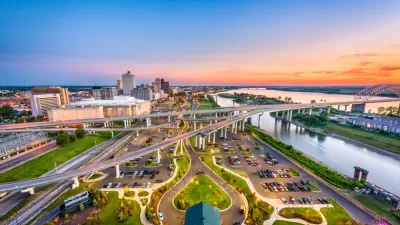The cause of infrastructure should be easy for people, and planners, to rally behind. But infrastructure's cause, like so many other political issues, invites conflicts of interest.

Angie Schmitt critiques Infrastructure Week, commemorated last week, mostly on Twitter (#InfrastructureMatters). Schmitt summarizes the event by calling it "a time where engineering and construction industry groups beat the drum for more money, using big numbers and images of collapsing bridges."
The problem with Infrastructure Week, according to Schmitt, is its focus on spending more money, rather than making better infrastructure.
Infrastructure Week is brought to you by some of the largest engineering firms in the world. The coalition is broader than that, and includes some perspectives that emphasize quality and efficiency. But the driving force is the American Society of Civil Engineers, an organization with plenty of self-interest in bigger public construction budgets.
Schmitt's argument includes additional, specific points about the sometimes-contradictory claims of the American Society of Civil Engineers before coming to the conclusion that the people leading the Infrastructure Week discussion are still catching up to a mature approach to infrastructure.
FULL STORY: The Problem With “Infrastructure Week”

Planetizen Federal Action Tracker
A weekly monitor of how Trump’s orders and actions are impacting planners and planning in America.

Map: Where Senate Republicans Want to Sell Your Public Lands
For public land advocates, the Senate Republicans’ proposal to sell millions of acres of public land in the West is “the biggest fight of their careers.”

Restaurant Patios Were a Pandemic Win — Why Were They so Hard to Keep?
Social distancing requirements and changes in travel patterns prompted cities to pilot new uses for street and sidewalk space. Then it got complicated.

Platform Pilsner: Vancouver Transit Agency Releases... a Beer?
TransLink will receive a portion of every sale of the four-pack.

Toronto Weighs Cheaper Transit, Parking Hikes for Major Events
Special event rates would take effect during large festivals, sports games and concerts to ‘discourage driving, manage congestion and free up space for transit.”

Berlin to Consider Car-Free Zone Larger Than Manhattan
The area bound by the 22-mile Ringbahn would still allow 12 uses of a private automobile per year per person, and several other exemptions.
Urban Design for Planners 1: Software Tools
This six-course series explores essential urban design concepts using open source software and equips planners with the tools they need to participate fully in the urban design process.
Planning for Universal Design
Learn the tools for implementing Universal Design in planning regulations.
Heyer Gruel & Associates PA
JM Goldson LLC
Custer County Colorado
City of Camden Redevelopment Agency
City of Astoria
Transportation Research & Education Center (TREC) at Portland State University
Camden Redevelopment Agency
City of Claremont
Municipality of Princeton (NJ)





























